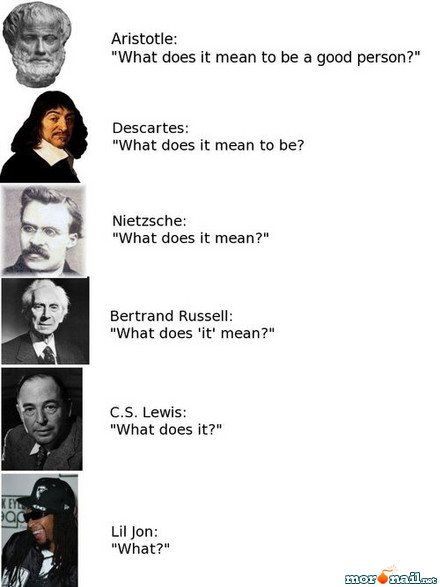Obviously, you didn't play Torment, which shows how deep and interesting concept of "substantial" alignment can be.
The half point of PS:T was deconstructing and fucking around with what it couldn't change about the nature of the setting to the point of making shit like alignment nearly meaningless.
That's one of the reasons it inspired such an undying love.
This.
Nowhere in Torment you see NPCs talking like that ("Sir, please could you be less evil ?" or "Attention all evil beings in the region! There is a bounty for the head of ...").
Its He-Man and Gummy Bear logic. In a game youre supposed to play a bearded axe-murderer.
Decent D&D writing never does that. Alignment is an abstraction, just like hit points, attacks per round and armour class. Don't think of it as characters viewing themselves as 'evil', 'lawful good' and so on - that's not an alignment issue, that's a retarded comprehension of alignment (it's just as silly for characters to go around saying 'hey, I have 28 hitpoints' or 'wow, this armour lifts my armour class by 3 points!').
It's an abstraction for a vast spectrum of personality types. Some people are more self-centred than others, some people respect authority more than others. If a character is particularly self-centred he might fall within the 'evil' category; if a character hates authority enough he might fall within the 'chaotic' category. No characters consciously apply those labels to each other in game, any more than they do hitpoints or armour class.
'Crap - I better wait before swinging again, I only have 1 attack per round.' 'Damn, I've been stabbed through the chest, severing 3 major arteries and will bleed out in seconds - but don't worry guys, I've still got 22 hitpoints, I'll be fine'.
Abstractions, how do they work?
(and if you think Torment is about playing a bearded axe-murderer, or killing everything/everyone you come across, you've clearly never played it. Stop this discussion and do so immediately - it really is
that good)


















